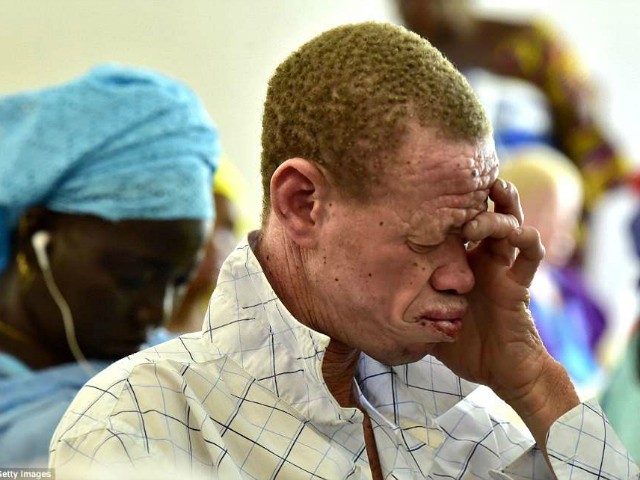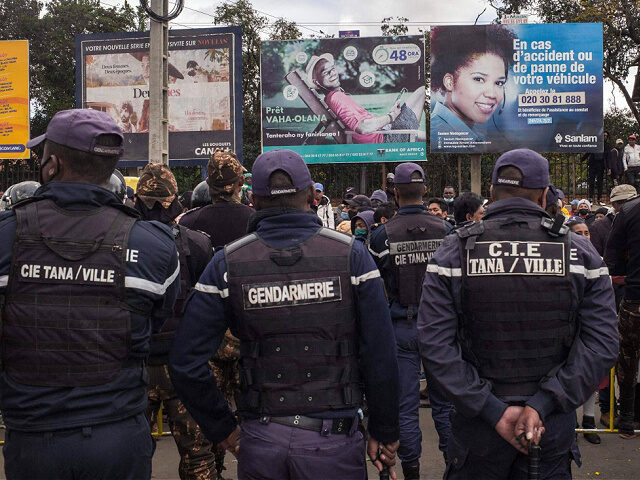Police in Ikongo, Madagascar, fatally shot at least 19 people on Monday after a 500-person-strong lynch mob overpowered a local police station holding four people suspected of kidnapping an albino child and murdering the child’s mother, Deutsche Welle (DW) reported Tuesday.
The shootings occurred on the morning of August 29 after a crowd of roughly 500 people — many of whom were armed with “blades and machetes” — descended on a local police station in Ikongo to exact revenge on the kidnapping suspects. The crowd demanded that the station’s police officers release the suspects so that they could exact revenge on them for their alleged crimes.
The station’s staff attempted to negotiate with the vigilantes so they would leave the station’s premises but were unsuccessful. Police officers then used smoke grenades to try to disperse the crowd but this effort also failed to deter the hundreds-strong lynch mob. The gendarmes finally tried to scare the mob away by firing shots into the air, but the weapon-wielding crowd continued to push forward, forcing the police officers to fire on the vigilantes in self-defense.
“Around 500 protesters armed with blades and machetes ‘tried to force their way’ into the station,” an Ikongo police officer involved in the shooting told Agence France-Presse (AFP) on Monday, speaking on condition of anonymity.
“There were negotiations, (but) the villagers insisted,” the officer said in a telephone interview with the French news agency.
He said that although police fired tear gas and shots into the air to disperse the mob, its members “continued to force their way through.”
“We had no choice but to defend ourselves,” he stated.
“We could not do anything else but protect ourselves and the barracks,” Madagascar National Police Chief Andry Rakotondrazaka told reporters on August 30.
The police officers stationed in Ikongo had “no choice but to resort to self-defense,” he said, as quoted by DW.
Rakotondrazaka said that some of the mob’s members were armed with “long-bladed knives and sticks” while others “threw stones at police.”

A Senegalese albino man attends the International Albinism Awareness Day on June 13, 2017, at the cultural centre Douta Seck in Dakar. Albinism is a hereditary genetic condition that causes an absence of pigmentation in the skin, hair, and eyes. In some countries albinos are kidnapped and their body parts hacked off for use as charms and magical potions in the belief that they bring wealth and good luck. (Photo credit should read SEYLLOU/AFP/Getty Images)
Ikongo is located about 56 miles southeast of Madagascar’s national capital, Antananarivo. The African island nation of Madagascar is located in the Indian Ocean and is considered one of the poorest countries in the world. People with Albinism across Africa are often kidnapped, killed, and dismembered as part of a belief rooted in witchcraft that their body parts “used in charms and potions bring wealth, power and good luck,” according to the Canada-based charity Under The Same Sun, which works to combat anti-Albinism discrimination.
Albinism is a genetic disorder in which a person’s body produces very little or no melanin, which is a pigment in skin, hair, and eyes. Albinism afflicts hundreds of thousands of people worldwide, “particularly in Africa,” according to AFP. Under The Same Sun ranks Mozambique, Tanzania, Malawi, Burundi, and the Democratic Republic of Congo as the African countries in which anti-Albinism attacks are most widely documented.

COMMENTS
Please let us know if you're having issues with commenting.